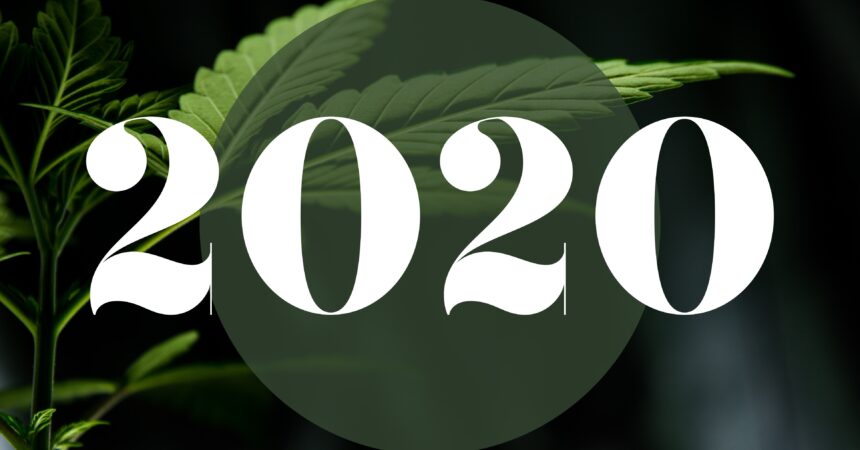In order to access this website you must be of legal age in your region.
What We Learned in 2020: Cannabis Insights and Trends

By Gregory Frye
2020 was a rough year in more ways than one. However, it was also a pivotal, record-smashing year for cannabis. What were the biggest takeaways and learning moments for operators in the space?
In Washington state specifically, Aperon Corporation — parent company to grading service Big Tree Grading and the industry’s first quality verified wholesale marketplace, Tamerlane Trading — experienced 25% growth in the amount of cannabis graded and moved on the wholesale market.
Along the way, Aperon observed plenty of noteworthy trends, insights, and lessons-learned — all relevant to cannabis industry stakeholders.
1. WHOLESALE CANNABIS PRICES REACHED ALL-TIME HIGH SINCE 2016
A number of factors led to this boon in i502 cannabis prices, says Jhavid Mohseni, CEO of Aperon Corp. The result was a perfect storm for cannabis prices.
One factor was the 30% increase in consumer consumption, most likely due to the COVID-19 lockdown.
In addition to this surge in sales, the LCB released a June 2020 report revealing that approximately half of the state’s licensed canopy space was not being utilized.
“From mid 2016 to late 2019 the market in Washington had gone into a glut,” Mohseni notes.
“Some outdoor clients had been telling us prices were too low, and they would start planting again when they returned to sustainable levels. Other operators were just struggling to survive and needed to shut down to find new investment capital or come up with new strategies. Increased demand in 2020 led to increased prices.”
Further adding to the increase in wholesale prices in 2020 were more brands extending their line of products as well as a rise in distribution consolidation, where a handful of companies would group together and create their own mini-supply chains.
“For now higher prices are a welcomed respite from the glut, the question now is how long will that last. The 2020 outdoor season was a bumper crop for many. All indications now are that there is potential for a new glut but not across the board. Some products will maintain sustained higher prices, while others drop, possibly finding new lows in 2021.” Says Mohseni.
This consolidation in distribution gave a sense of less product on the market, Mohseni explains, shifting balance toward the supplier. “Suddenly you’ve got more people going out there with cash in their pockets, scooping up whatever they can. Prices steadily rise, and people get comfortable paying more.”
For the producers who decided to skip out on 2020, it was a painfully missed opportunity. This was no doubt one of the big learning moments for cannabis in 2020.
“A lot of business-savvy operators knew this was going to be a cyclical market,” Mohseni notes. “The ups and downs are going to be greater in the beginning, and it comes down to operators realizing they’ve got to get better at managing costs, managing profits, knowing where their break-evens are, and learning how to be more efficient.”
2. FORWARD COMMITMENTS A BIG WIN FOR OPERATORS
Forward commitments – really purchase and sale agreements – proved to be a hit among buyers, sellers and service providers.
“This last year, people saw prices consistently rising, which brought a sense of urgency to lock in deals,” Mohseni explains.
Tamerlane clients immediately realized the value brought on by the consistency of forward commitments. In fact, as Mohseni notes, it’s something they’d been asking and waiting for, with Tamerlane supportively launching its forward commitment frameworks in 2020.
For suppliers, the big win was enhanced sales planning, cash-flow consistency and stable pricing.
Buyers meanwhile benefited from improved production efficiency, purchase planning, as well as the ability to maintain shelf space and better serve retailers and consumers with quality and price stability.
3. BIG DATA GOES EXPONENTIAL
Big data is critical in that it helps businesses identify new solutions and opportunities. Over the past year, Aperon brought in about 2 million fresh data points through Big Tree Grading – the other branch of the ecosystem, which Aperon continues to grow and develop.
“Sourcing over 125,000 pounds of product turns into a couple million points of data,” says Eric Cozens, CEO of Big Tree Grading.
“The amount of industry insights we’re going to be able build on year after year is pretty significant.”
Cozens’ revelation that Big Tree graded over 125,000 pounds of product in Washington last year is a 25% increase from 2019.
While this data is extremely valuable for stakeholders across Washington’s cannabis market, it also holds a lot of relevance and opportunity for cannabis markets across the U.S. and abroad.
The qualitative and quantitative grading and transactional data collected through the Aperon ecosystem, Mohseni explains, is providing foresight into a more decentralized cannabis workforce on a global level. Not only that, but the data will provide additional value such as improved products and services, as well as consistent, standardized, and accurate market data and insights.
“It starts with bringing a common language and nomenclature to cannabis through the International Cannabis and Hemp Standards (ICHS), which creates transparency and trust — and then training people or companies outside of the Aperon ecosystem, putting the process into their hands so they can standardize and facilitate first-level grading.”
PREPARING FOR 2021 AND BEYOND
Building on all of this, Aperon Corp heads into 2021 with a global sense of excitement and optimism.
“We’ve been refining this for three years, the collection process, the training, the language,” Mohseni notes, emphasizing the constant flexibility and improvement.
“Aperon is fueled by the desire for constant improvement, and we don’t expect that to end anytime soon. We expect it to be consistent with the growth of the industry for the next two to three decades.”

Gregory Frye is a storyteller, writer, editor and award-winning journalist with a love for meaningful collaboration. Most recently, he was part of the founding team at Green Flower Media, where he spent almost five years as executive online editor.
